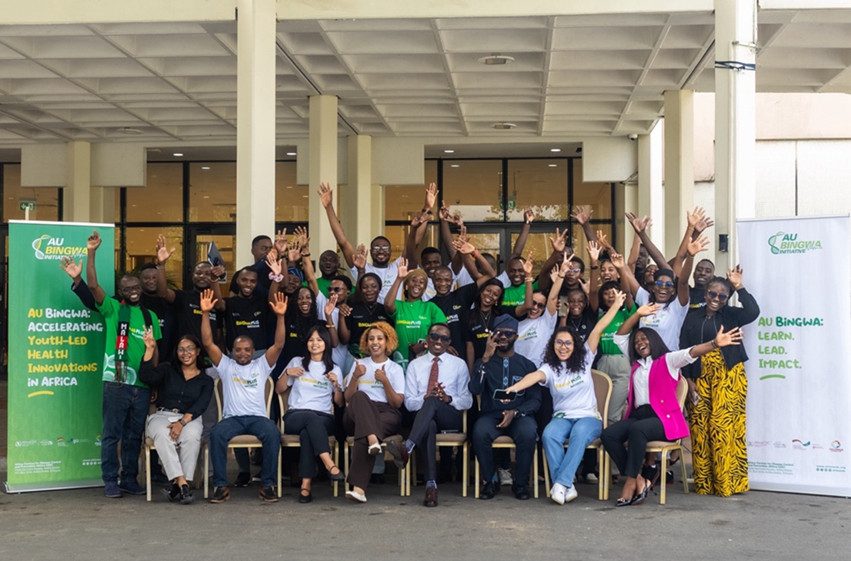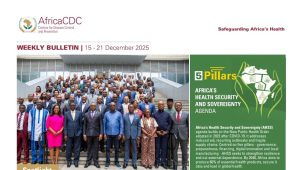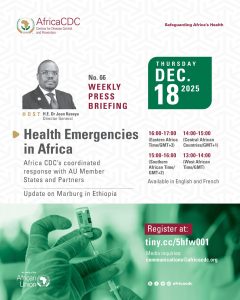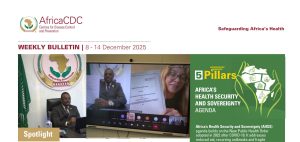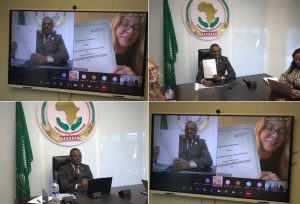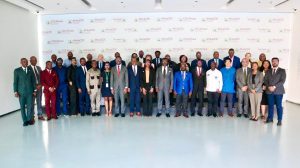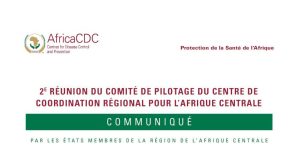A few students at Johns Hopkins University School of Public Health in March 2020 pitched the idea of the International Working Group for Health System Strengthening (IWGHSS) as part of a competition.
Their idea was chosen as the best in the competition, and later, connections were made with other World Health Organization (WHO) regions and institutions.
Today, the IWGHSS, a youth-led global network advancing equity and governance in health systems, continues its mission of co-developing and creating a collective space for young people to reimagine how health systems can function.
“We define ourselves as a community of action,” said Dr Bettina Buabeng-Baidoo, IWGHSS Co-Executive Director. “We convene emerging changemakers to catalyse efforts towards health system strengthening. Our mission is a world in which the next generation of changemakers are equipped to imagine and co-create equitable solutions for global health system strengthening. Our vision is a world where emerging voices are included.”
In its quest to become a leading global think tank and policy institute that centres the voices of young people at all levels of the health system, IWGHSS has joined hands with Africa CDC to ensure that young people in Africa have a space at the table in global health governance.
Among the programmes led by the Africa CDC Youth Programme is the Africa CDC Bingwa Plus initiative, in which IWGHSS is an active partner.
During a webinar held as part of Africa CDC Youth Week, Buabeng-Baidoo said the group is focused on creating youth-led policies and research led by and for young people working in the health space.
“We are also involved in advocacy, through campaigns at different levels of the health system, and a very big focus for us is capacity strengthening. These webinar sessions form part of our efforts to strengthen capacity. But we also speak critically to the fact that the Global South faces a major research gap,” she said.
Buabeng-Baidoo added that much research is not conducted by researchers from the Global South or by young people themselves. The advent of artificial intelligence and digital health offers opportunities to close that gap.
“One of our aims is to equip young people with the ability to use new technology to create cutting-edge research,” she said.
“Under the Africa CDC Bingwa Plus programme, we will be leading a Youth and Global Health Governance Report,” she explained. “Through this report, we want to show that the world’s population is over 30 per cent young people, 60 per cent in Africa, a number expected to rise to 75 per cent by 2030. Yet their presence in global health governance remains largely tokenistic, even though they are widely recognised as changemakers.”
Buabeng-Baidoo said a preliminary report will be released within three months, drawing on publicly available data. The team will start with a scoping review of existing literature and an analysis of youth engagement strategies, such as the Africa CDC Youth Engagement Strategy and the UN 2030 Youth Report, to identify synergies, gaps, and measurable impact.
Some of the indicators being developed include youth representation in staffing, the existence of youth advisory boards, youth engagement strategies, youth participation in policy decision-making, and institutional commitments to youth inclusion.
“We want to know: what is Africa CDC’s commitment to youth inclusion? What targets does the organisation aim to achieve, and how is it monitoring and evaluating progress?” she said.
Dr Chrys Promesse Kaniki, Africa CDC Youth Lead, said the agency already has a strategy to engage young people, aligned with the Agenda 2063, the Africa CDC Strategic Plan, and the African Youth Charter, currently under review with the African Union Commission Youth Division.
“Young people are playing a crucial role in Africa’s public health, and it’s equally crucial to ensure that we include and meaningfully engage them,” said Dr Kaniki.
He added that inclusive policy is essential to integrate young people in all processes and ensure long-term success.
“Young people are more likely to leverage digital skills. They are tech-savvy, and we must ensure that from application to telemedicine, they are driving the digital transformation of healthcare delivery on the continent,” he said.
Ezinne Onwuekwe, an independent Digital Health Strategist, noted that policy and governance for youth remain critical gaps.
“With the digital health evolution, many of us have taken courses and gained technical skills — coding, app development, creating solutions — but there is often a lack of grounding in policy frameworks, regulatory processes, and governance structures,” she said.
“We forget that, without policy, all those innovative solutions cannot be implemented effectively.”
Dr Kaniki added:
“Young people can identify problems in their communities and develop solutions. What Africa CDC is doing is creating a platform to support them, including mechanisms to mobilise resources and fund their innovations at community level.”
As Africa CDC strives to give youth a space at the table in global health governance, the continental health agency already has a Youth Advisory Team serving from 2023 to 2025 and looks forward to onboarding a new advisory team in November.

